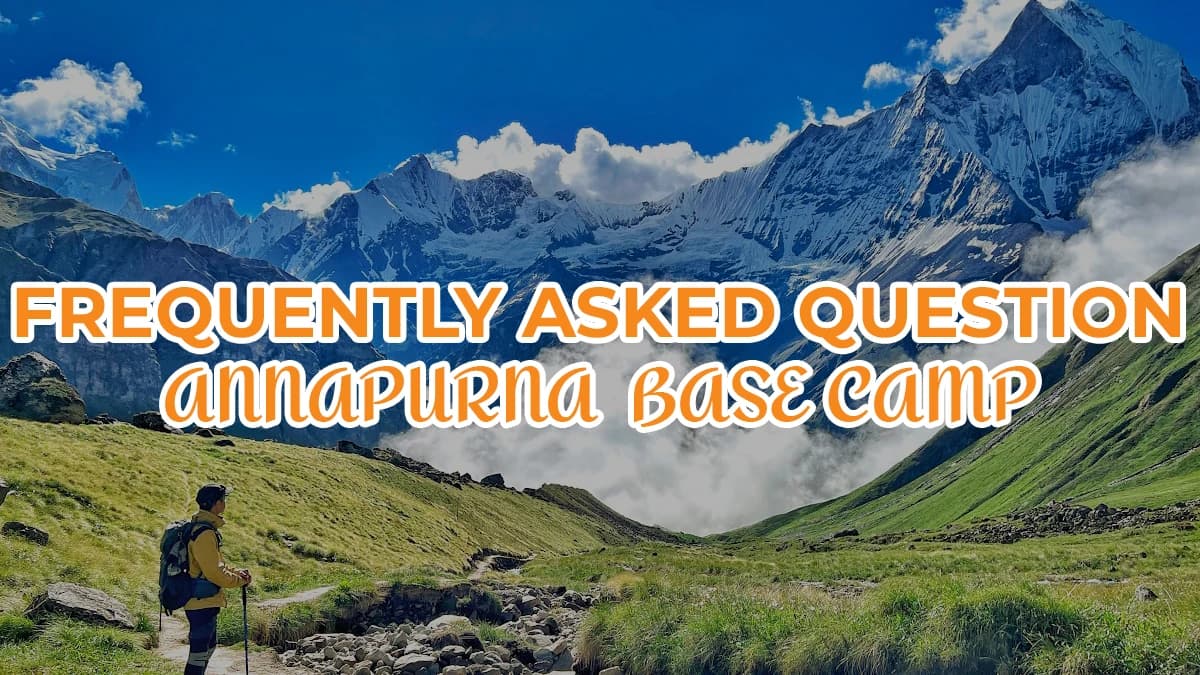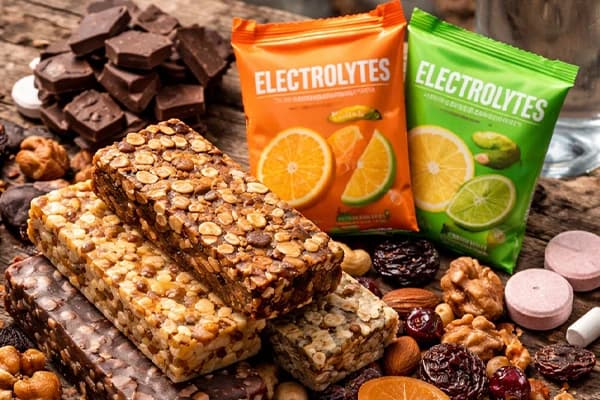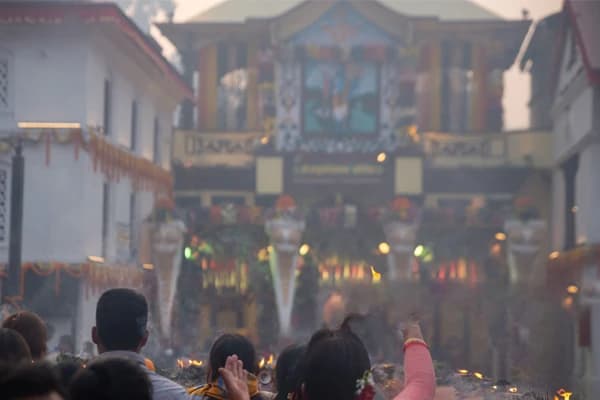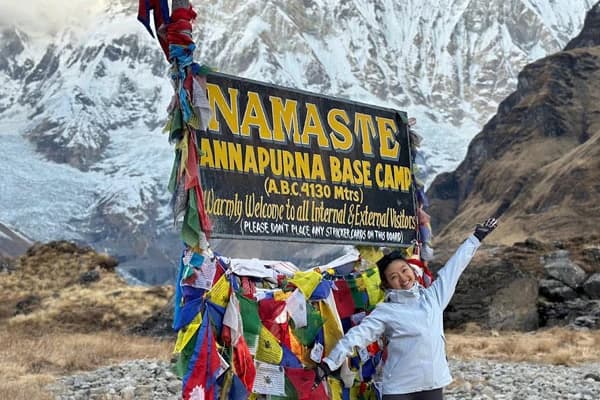General Faqs
- What is trekking?
Trekking is an adventure that is usually lengthy and requires multiple days of walking in rough terrain. The path is generally steep and there is a chance of encountering snowfall at higher altitudes.
- Is trekking for me?
Yes, trekking is for everyone. Everyone can enjoy this beautiful journey if they are physically fit and aren’t suffering from chronic illness. Trekking can be done by children, adults, and those who are in their 60s.
- Why is a guide necessary? Can’t I Guide myself even t hough I have trekked before?
The guide is necessary even though you have trekking experience because it ensures your safety. Hiring a licensed and experienced guide is not a legal requirement but a solo trip into the wild is very dangerous. The remote countryside and high elevation are full of mystery, you wouldn’t know when this journey will end up in a threatening experience. Most of the trekking trails go through the dense forest where wild animal encounters are common, this could be risky if you are alone.
The steep terrain may cause landslides and erosion, you won't have any idea regarding the land structure so you need someone to guide you in the potential risk area. Additionally, the locals of the remote areas don't understand English, if you get lost and want to communicate with them there will be a language barrier. You have to wander independently for directions and shelter purposes. With the experience of more than 15 years, our certified and licensed guide will come in handy while trekking in the lap of the Himalayas.
PAYMENTS & EXTRA COSTS
- When I Pay the remainder of the money on arrival in Kathmandu, How do you take that money? US cash or credit card?
We accept all currencies and offer credit card services as well. If you are paying the money via credit card, we charge a 13 % fee for credit card payment as a foreign transaction fee.
- Can I use credit cards in the places I visit in trekking?
In Nepal, credit cards are of limited use. Kathmandu and Pokhara Valley offer a huge range of ATM services. You can withdraw your money by exchanging it and they charge $5 US as a service fee and an additional charge. You can withdraw NRS 25,000 ($215 US approx) daily from this ATM booth.
- What extra costs can I expect?
Our package includes all the fees from arrival to departure, including food, lodging, transportation, and sightseeing. You must have an extra $300 to $600 for extra expenses and tips for your guides and porters. This money will be used for renting a sleeping bag, and a down jacket, using shower facilities, and charging electrical devices at tea houses. Prepare for extra funds it will be handy for booking a charter helicopter in case of flight delays or cancellations in Lukla airport. (terms of service- extra expenses)
- What about extra hotel nights?
Our team will arrange an extra hotel night in Kathmandu and Pokhara before or after the journey at an additional cost. If you are planning on extending, let us know before so we can make arrangements as per your needs.
- What are the next steps once I pay the deposit?
When you pay the deposit for the trip, we need a scan or photo of your passport followed by arrival details so that we can book your flight to Lukla. We also have to buy trekking permits so you must send us them as soon as possible.
WHO CAN GO?
- Are there any age limits for Himalayan trekking?
According to the law, children under 18 must be accompanied by their parent or guardian for trekking. Anyone can participate in this beautiful journey if you are healthy and enthusiastic.
- How difficult is trekking?
Trekking in the remote areas of Nepal ranges from easy to difficult. The specific trek, preference, and altitude of trekking determine the difficulty of the trek.
- Is previous trekking experience really necessary?
No, previous trekking experience is not compulsory. If you have previous experience it will add joy and entertainment to your journey. Everyone will enjoy the trekking except those who are suffering from cardiovascular and breathing issues.
PREPARATION
- What type of insurance should I have? Where can I obtain a policy?
You must have travel insurance for trekking in the remote regions of Nepal. It is mandatory and it’s your responsibility to bring it during the trekking. You need to provide proof of your insurance before arriving for the trek. For more details regarding the insurance click
- What's the best time of year to book a trek in Nepal?
If you are planning on booking a trekking package in Nepal, make sure to book it in the Autumn and Spring season. In Nepal, Spring starts at the end of February and lasts until May while Autumn starts in September and ends in December. Trekking in the monsoon and winter season brings many obstacles and you couldn't enjoy the mother nature due to the extreme weather conditions in higher elevations.
- Are any permits required for trekking?
Yes, trekking in the Himalayas requires permits. Some trekking areas are restricted areas so you need to have a special permit to enter. Other permits like Trekking Information Management System (TIMS) cards and permits to enter conservation areas or national parks are required. We handle all these permits on behalf of our clients.
ABOUT THE TREK
- How long do treks last?
The duration of trekking depends on the altitude. Most of the trekking lasts for two to four weeks.
- How long do we spend walking each day?
You need to walk four to six hours a day. Depending on the altitude and trail condition you have to cover a distance of 5 to 15 km daily to complete on time.
ARRIVAL & VISAS
- Who will come to pick me up at the airport upon my arrival?
Our company representative will pick you up at the airport. They will be there with our company signboard, Mystic Adventure Holidays. Then, he will transport you to the hotel and help you check-in.
- Can I get a Visa on arrival at the airport for Nepal?
Yes, there is a facility for an arrival visa for some nations only. It will only take 20 to 30 minutes depending on the crowd. You must have a passport with at least 6 months of validity on the date you are entering Nepal. You can learn more about visa fees and other details in terms of service-visas.
- What sort of hotel can I expect in Kathmandu?
We offer a 4-star hotel, the Kantipur Village Hotel for your stay in Kathmandu. It is located in Thamel which is in walking distance from our company.
- What about extra hotel nights in Kathmandu?
If you intend on staying nights in Kathmandu, we can arrange an extra night on request. We provide only 2-night accommodation in Kathmandu according to our package and an extra night can be managed by an additional charge. When booking extra accommodation with us, we can manage this arrangement by shifting with no extra cost in case your flights to Lukla get delayed.
ROOM AND BOARD
- What kinds of accommodations will we utilize?
The accommodation throughout the trek is either in a lodge or guest house except for the camping trip. Besides this, you need to spend a night in tents in some trekking areas where there is no access to lodges and guest houses.
- What is teahouse trekking?
Teahouse trekking is usually done in mountain regions. This type of trekking includes lodging and meals at local tea houses or lodges in terms of full board.
- Where will our drinking water come from?
The drinking water should be managed by the client. We donot manage it so you must bring a Chlorine/ Iodine tablet and a sterile pen to treat the local water. You can fill your water bottle from the tap of tea houses but you must treat it before drinking. You can also buy mineral water bottles from the tea houses which cost $1 US to $4 US depending upon the altitude.
- Where do we eat our meals?
The three-time meals are available in lodges and guesthouses. They offer a wide range of meal services in lower altitude regions while in remote areas of higher altitude, they serve traditional dal bhat with curry and instant noodle soups.
HEALTH AND SAFETY
- What physical criteria will ensure I'm fit enough to trek?
The fitness criteria for trekking include overall flexibility and good physical and mental health. The safety and comfort of the trek depend on these criteria and you shouldn't have any acute or chronic health illness. You must be 100 percent ready for the trek as trekking in the Himalayas requires continuous effort, long days, and hours of walking in the steep and rough terrain.
- How will we deal with altitude acclimation?
When trekking at a higher altitude lower oxygen density affects the cardiac and pulmonary systems. When our body takes time to adjust to the increased elevation, we become ill. You may suffer from breathing difficulty to acute mountain sickness. So, you must walk at the same pace and acclimatize properly to avoid these sicknesses.
- What do I need to know about sun protection?
Trekking in higher altitudes requires long hours of walk time we have to walk throughout the day. The intensity of the sun increases with the increase in elevation and snow on the trail reflects more UV rays. You must wear long-sleeved clothing and sunblock on the exposed part of your body like neck, face, and ear. Wear sunglasses and a hat to avoid the scorching sun rays.
- What happens if I get sick or injured while trekking?
Our guides and trekking leaders are in charge of client safety and wellness. They are trained and experienced in dealing with emergencies with first aid. If you suffer from altitude sickness we will take you to a lower altitude and in case of extreme illness you will rescued via helicopter. Your travel insurance must cover the emergency evacuation and you will be admitted to a hospital in Kathmandu or Pokhara.
- Are solo female travelers safe on Himalayan treks?
Female guide and trekking leader will ensure the safety of solo female travelers on Himalayan treks. Nepal is very safe and welcoming for foreigners irrespective of their gender. We will book accommodation for solo female travelers with whom we have strong relationships. Likewise, our guide will take care of your basic needs and be a companion throughout the journey.
PRACTICAL MATTERS
- What should I pack?
The packing list depends on the season of your travel. You must pack essential clothing and equipment like a down jacket, warm fleece jacket, thermal underwear, trekking pants and shorts, boots sleeping bag, and backpack. Include medicine if you are on medication bring only essential things and avoid overpacking as it may cause difficulty during your trip.
- What sort of footwear is recommended?
The footwear must be comfortable and sturdy. You must break your boots before wearing them for an actual hike. The Gore-Tex or thick soles will make your feet stay warm and dry. Bring woolen socks instead of cotton for extra warmth.
- How much can a porter carry?
The porter carries an average bag with a weight ranging from 15 kg to 25 kg. If you are planning for camping then the porter will carry 40 kg of bag at an additional cost. One porter will carry the baggage of two travelers.
- Should I tip my guide? How about my porter?
Tipping to guide and porter is not mandatory. Tipping them for their hard work will be a sign of gratitude. You can tip as much as you want and this small gesture will bring happiness to their face. Porter's main source of income is carrying the bags of the travelers and tipping them a little extra will come in handy for helping their families.
- How much money should I bring along?
The trekking package includes expenses like food, accommodation, park fees, permits, and so on. Bringing extra money on the journey will be used when buying drinking water, and personal expenses like buying snacks, showering in hot water, charging electronic devices, and so on. You must have $20 a day for these expenses.
- What communication options exist while trekking?
It depends on the altitude and kinds of the trekking. Mobile coverage is available throughout the world and there is availability of 3G coverage over Mount Everest as well. Similarly, other trekking route features local VHF phones and on remote trails, there is only access to satellite phones.
- Can I get a refund if I don't finish the trek?
No, you won’t get a refund if you don’t finish the trek. If you end up stopping the trek due to health or personal reason we can’t refund you because we have to pay our guides and porter for the time they have committed. Likewise, we have paid money for all the necessary entrance and permits which is non-refundable.
- What is your cancellation policy? How about other terms and conditions?
To know about the cancellation of our company, check out our terms of service. You can also contact us for more information.
- What type of insurance should I have? Where can I obtain a policy?
You must have travel insurance which should cover all the medical expenses and emergency evacuation by helicopter. It is mandatory and bringing it while trekking is your responsibility. Before arriving at the destination, you should provide proof of insurance via email. The details regarding insurance are mentioned in the Terms of Service - Insurance.
- What should I pack for my trip?
We have a blog published on the packing list for Everest Base Camp. Make sure to check it for all the details of trekking clothing and equipment. If you do not want to pay extra for heavy luggage, there is a facility for renting for trekking clothes and equipment.
- Can you rent sleeping bags or a down jacket?
Yes, you can rent sleeping bags or down jackets. It costs $20 to rent a -20C sleeping bag and $15 for down jackets. We will provide it a night before your flight to Lukla and you need to inform us earlier.
- What about the duffel bag for the porters?
The duffel bag will be provided by our company in Kathmandu. It is necessary to carry your luggage item on the flight and as well as by porters. You must carry a backpack for essential items until you reach the tea houses because most of the time porters get ahead on the trail.
- How big should my day pack be?
We recommend you bring a backpack of about 40 L. It must carry all the essentials and extra layers and must be the size of a school backpack.
- What about weight limits?
The weight limit of your luggage must be whing 15 kg(22 lbs) and the carry-on must be 20 kg or 33 lbs. You must pay an extra charge than this limit while traveling from Kathmandu to Pokhara or Lukla.
- What should I do with passports, medication, and valuables?
You should keep all the items like medication, passports, and valuables in your carry-on during the flight and at the time of trekking as well. This will prevent last-minute worrying due to loss or theft of the luggage.
- Can I leave my luggage in Kathmandu during the trek?
Yes, you can leave luggage at the hotel or our office in Kathmandu during the trek.
- Can I charge electric devices on the trek?
Yes, you can charge electronic devices on the trek. You need to pay an extra $1 or $4 for charging your electronics per hour.
- What type of adapter might I need?
Most of the tea houses have an American outlet of power strips. Some have a C or D type of outlet and you can buy at least the common adapter for charging your devices.
- What about wifi or phone calls?
Tea houses and lodges at lower elevations offer Wi-Fi at an extra cost of $3 or $10. If you buy a local SIM card in Kathmandu it will be easier for you to get access to the internet and calls. If you don’t want to buy SIM then persuade your guide to make international calls through his phone which will be fairly reasonable.
- What are the Toilet facilities in the tea house/guesthouse?
The toilets in higher altitudes are made in Asian style with a ceramic basin on the ground. You have to share a communal toilet with another guest at tea houses. You can find attached bathrooms built in Western style with a flush on the lower altitudes.
- Where can I use the restroom along the trail?
During the trail, you can use the restroom at the tea houses or lodges. In case of urgency, you can go off the trail and empty your bladder.
- Do I need to bring toilet paper for the trek?
Bringing toilet paper is a good idea. It is also available along the trail in the shops but it costs more than $5 for a single roll of tissue in higher elevations like Gorakshep.
- Is it possible to shower on the trek?
Yes, a shower facility is available on the trek. You can pay an extra $3 to $5 for a hot shower. In lower altitudes hot showers come in the bathroom while you will be given a bucket of hot water at higher elevations.
- Is it possible to do laundry on the trek?
Yes, laundry services are available on the trek. The tea houses and lodges offer washing services for a small fee. You can also wash your clothes on the acclimatization days in Namche bazaar or Dingboche but we recommend you to bring extra clothing. You should enjoy your time with nature fully instead of washing clothes.





